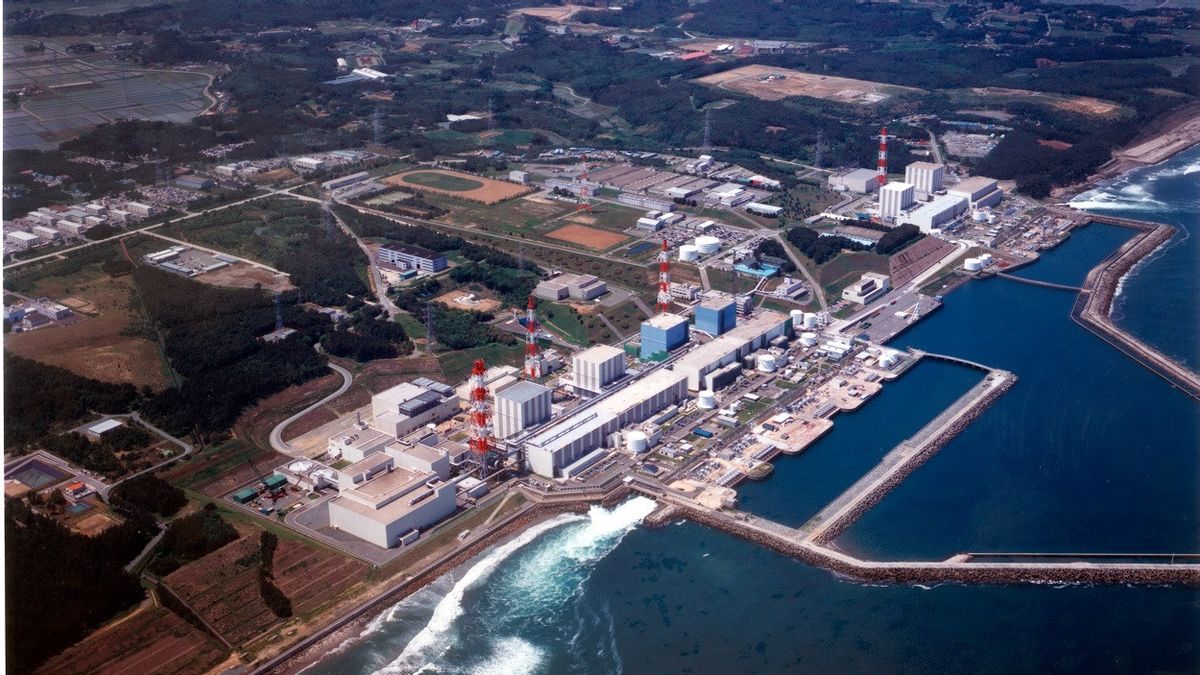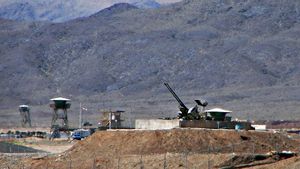JAKARTA - South Koreans are rushing to stockpile sea salt amid growing concerns over the potential health hazards originating from the disposal of radioactive waste water from the Fukushima Nuclear Power Plant (PLTN), Japan, which was paralyzed this month, according to industry officials Tuesday.
On Monday, Japan began conducting a two-week trial of a water disposal process containing tritium, a hydrogen isotope, from the damaged PLTN Fukushima Daiichi, after being hit by a tsunami triggered by an earthquake in March 2011.
A Suhyup store, or National Federation of Fisheries Cooperatives in Sinan, South Jeolla Province, raised the price of 20 kilograms of salt produced in 2021 from 25,000 won to 30,000 won, starting last Thursday.
According to the store, the same amount of salt was traded at a price of 14,000 won in April. It is known, Sinan accounts for about 85 percent of salt production in the country.
"We usually sell the 10 bags of salt in a day, but with the increasing news about the disposal of Fukushima wastewater, about 1,000 bags have been sold," an official from the shop said.
"We have no choice but to increase prices, due to increased personnel and delivery costs," he said, adding the salt had now been sold out on its website.
Meanwhile, Japan's Ministry of Maritime Affairs and Fisheries denied that the increase in salt prices was caused by hoarding in the midst of the Fukushima issue.
"The main cause of the increase in salt prices is the decline in production due to more rainy days than usual and hoarding by retailers for the preparation of the rainy season," explained a ministry official.
However, industry players have different views. They said, although production this year fell by about 30 percent from the previous year, this was not enough to explain the current soaring price of salt.
"Japan's plan has scared consumers. This is not the only reason for the increase in salt prices, but it will definitely have an impact," said an official at a salt field in Sinan.
Previously, Korea had experienced a surge in salt prices in March 2011, when large earthquakes and tsunamis hit Japan, damaging the cooling system of PLTN Fukushima. At that time, the market price for 20 kilograms of salt was 10,500 won, up 93 percent from the previous year.
In April 2021, the Japanese Government announced plans to start releasing radioactive waste water from the damaged Fukushima nuclear power plant on Japan's east coast into the Pacific Ocean.
The plan has raised strong objections, not only from neighboring countries, but also from local residents and fishermen in Japan.
اقرأ أيضا:
In Korea, the Moon Jae-in administration, which was still in power, expressed its rejection of the plan. But President Yoon Suk-yeol's current administration, which has sought to improve relations between the country and Japan, maintains the government's position will not be able to stop it if the scientific analysis of the International Atomic Energy Agency (IAEA) and the government's inspection team finds no problems.
Meanwhile, the Fisheries Ministry said monthly radioactive measurements of sea salt across the country, which began in April, had so far found no radioactivity, and noted they would continue to expand inspections in a bid to ease concerns.
The English, Chinese, Japanese, Arabic, and French versions are automatically generated by the AI. So there may still be inaccuracies in translating, please always see Indonesian as our main language. (system supported by DigitalSiber.id)


















